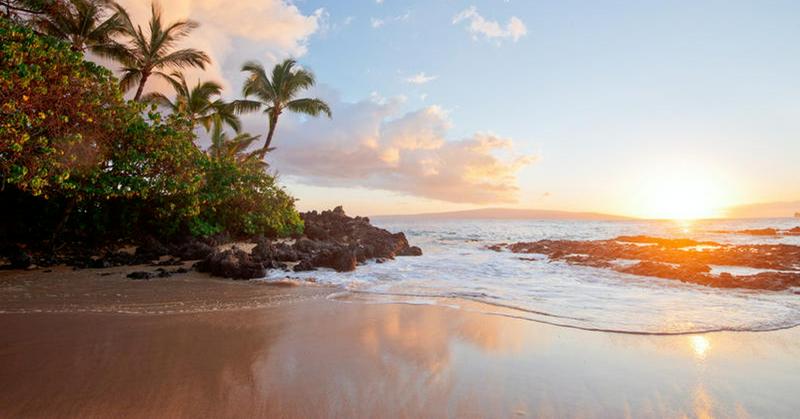Hawaii: Surprising Facts About The Aloha State
By | March 19, 2022

It's Been Around For A While
At 4,000 miles from Japan and almost 2,400 miles from the mainland United States, Hawaii is the most isolated population on Earth, so how did anyone ever find this tropical paradise in the first place? Unfortunately, the exact date of the discovery of Hawaii is unknown, but best estimates place it about around 300 C.E., when explorers from the Marquesas Islands in Polynesia set out on canoes. However, it seems like the long treks out to Hawaii stopped around 1300 C.E.

First Contact
The people of Hawaii lived in total isolation for the next 500 years, until famed British explorer James Cook made contact with the islanders on his third major voyage in January 1779. (He stopped on the island a year earlier to replenish his water but did not engage heavily with the native people.) Initially, Captain Cook was welcomed by the native Hawaiians, who had not yet developed metalworking and were impressed by Cook's ship and tools. Cook wrote that the Hawaiians viewed him and his crew "as gods," specifically the god Lono, as he happened to arrive in the bay dedicated to the god around the time of a religious festival.
Whether or not some of the Hawaiians honestly believed he was a god is contended among historians, especially given that a crew member of his died not too long into their stay, which is fairly ungodlike behavior. Regardless, he was treated extremely well. Maybe a little too well, as it seems some resentment brewed during his extended stay. It didn't help much that Cook made several cultural faux pas, like taking the wood from the fence around a sacred burial area and accusing a chieftain of stealing a boat (which was even more awkward when the boat was actually found among the crew).
Whatever the case, he was not so welcomed when he returned only a few weeks later, greeted by Hawaiians throwing rocks. Soon, Cook discovered that one of his boats actually was stolen this time, so he did what any reasonable person would do and tried to kidnap their monarch, the aliʻi nui Kalaniʻōpuʻu. As you might imagine, this did not go over well. A small battle broke out between Cook's crew and the native people, and Cook wound up stabbed to death. In case you've heard this story before, no, the Hawaiians did not eat Cook's body, and there is no record of cannibalism in their history. However, it is true that Cook was, well, cooked, as the Hawaiians' burial rituals for esteemed people involved the use of their bones and it was a lot easier to get them that way. Some of his body was eventually given back to the crew so they could perform their own burial rituals in England.

The Last Queen Of Hawaii
The monarchy continued until the late 1800s, ending with Hawaii's last (and also first) ruling queen, Queen Lili'uokalani. Although she was well liked, her reign was a short two years, after which attorney Sanford Dole (of the Dole agricultural family) staged a coup and overthrew her as ruler. He became the first president of Hawaii and encouraged the United States to annex the island, although U.S. President Grover Cleveland decried the takeover as illegal and initially fought to return Lili'uokalani to the throne. Congress strongly disagreed, and when Lili'uokalani's supporters fought back, she was put under house arrest for treason, though she secured pardons for her supporters and finally abdicated her throne on January 24, 1895.
America's 5oth
Although Hawaii was officially annexed in 1898, it did not become a state until 1959, when a vote cast 94.3% of inhabitants in favor of statehood. By this point, native Hawaiians were a minority of the population, and many who were born on the island during the early 20th century were U.S. citizens by nature of their parentage. Hawaii was the last state admitted to the country, and the flag with 50 stars made its debut on July 4, 1960, though both Washington, D.C. and Puerto Rico have pushed for recognition as states, so we may be getting a new one any day.

